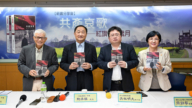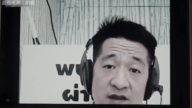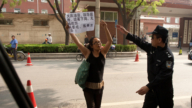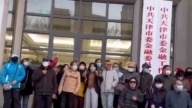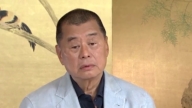【新唐人2012年3月29日訊】27號,聯合國難民署對外公布的最新年度統計顯示,世界上申請難民資格最多的是阿富汗人,緊跟在後的是中國人;另外,「胡潤研究院」與「興業銀行」發佈調查報告顯示,中國億萬資產以上的人群數量約6.35萬人,其中90%計劃送孩子出國留學。分析指出,在中共專制體制下,人人自危,送子女到國外讀書是每一個中國家庭的夢想,也是貪官污吏和富豪們轉移國內財產的一個重要途徑。
聯合國難民署27號對外公布的最新年度統計顯示,2011年在工業化國家遞交難民庇護申請的人數猛增20%。阿富汗申請難民庇護人數佔第一,多是在10年戰爭期間為逃離貧困和迫害的民眾;而中國人位居第二,僅去年就有2萬4千4百多人,其中五分之三是申請到美國政治避難,比前一年增長了13%。
北京憲政學者陳永苗指出,這說明中國的政治環境惡劣,看似平穩,其實是沒有硝煙的戰爭。
陳永苗:「中國的一些難民最主要是政治壓迫的一個產物,說明中國的政治環境比較惡劣吧,你可以看到其他的,阿富汗的它是戰爭形成出來的,在中國,它可能也是對中國政府統治下,對老百姓也存在著一個低劣的,潛在的戰爭。」
另外,「胡潤」聯合「興業銀行」27號也發佈了《2012中國高淨值人群消費需求白皮書》。這份白皮書是去年10月至今年1月間,面對面訪問中國高淨值人群而完成的一份報告。調查顯示,中國大陸個人資產在600萬元以上的270萬人中,有85%計劃送孩子出國留學;個人資產在億萬元以上的6萬3千5百人中,90%計劃送孩子出國留學,其中66%考慮在中學和小學階段將孩子送出去。
大陸作家鐵流:「只要有錢的人都會把子女送出去,因為中國教育教不出人才來,不是有句話嘛:『北京大,北大結天下英才,毀之於天下英才』,所以中國的教育是很糟糕的,教不出人才,我也把我子女送到國外去啊,我也不算富豪,只要是有錢的人,中產階級都願意把子女送到國外讀書。」
大陸律師李天天也表示,不只是富豪想把子女送到國外留學,這也是每個家庭的夢想,只是沒條件。她說,就是這麽一群沒條件出國留學的人,在用自己的血汗支撐著中國GDP的增長,和供養著那些吃喝不作為的貪官污吏。
李天天:「中國這個環境,整個物理環境被污染,人文環境也污染的很厲害,如果有錢的話誰都願意把孩子送到國外去,接受更人性化的教育,生活在更人性的物質和人文的環境當中,這是每個家庭的理想。包括那些貪官,『裝睡的人』,醒悟的人都是這樣想的,所以中國共產黨就是『皇帝新裝』裡的那個皇帝,它們知道一切,但是就是裝模作樣,欺騙老百姓。」
陳永苗指出,這反映了在這個專制體制下,有錢人對中國未來的經濟安全、金融安全、子女的出路都非常的失望。
陳永苗:「 不單純是一個教育問題的,不是說在海外讀書是因為海外的教育好,不是的,不是的,他單是為了拿戶卡,227-247覺得國內不安全,這是一個因素;第二個因素他可能算是移民也是他轉移國內財產,非法財產的,不安全非法財產的一個途徑。」
今年2月,中國銀行和胡潤聯合發佈的《2011年中國私人財富管理白皮書》中也顯示,在中國高淨值人群中,14%的人已經移民海外,另有46%的富人正在計劃或者辦理移民。也就是說,當後者也完成移民手續後,每5個有錢的中國人中,將有3個是外國籍。
採訪編輯/李韻 後製/周平
China: No. 2 Refugee Applicant Country
On 27th March, the latest UN refugee statistics show that
Afghanistan is the top country for refugee applications.
In 2nd place is mainland China.
The joint report released by Hurun Research Institute and
Industrial Bank show that over 90% of billionaires plan to
send their children abroad.
Analysts say that for those living under the authoritarian
ruling of the Chinese Communist Party (CCP), every Chinese feel insecure.
Sending their child to study abroad now is a dream for
every Chinese family.
Meanwhile, it is an important way for those corrupt officials
and the rich to transfer their illegal domestic properties.
On 27th March, UN refugee agency’s latest annual statistics
show that the
number of refugees application filed in industrialized countries
surged by 20% in 2011. Afghanistan topped the ranking.
Most of the Afghan applicants were victims of the 10-year
civil war, who wanted to flee poverty and persecution.
China ranked 2nd on the list. In 2011 alone, the figure of
Chinese refugee applications exceeded 24,400.
Three-fifths of them were application for political asylum in the U.S.
The number increased by 13% over the previous years.
Beijing constitutional scholar Chen Yongmiao says
it indicates China’s political situation is harsh,
although it seems outwardly stable.
In fact, Chen calls it a war without gun smoke.
Chan Yongmiao: “Chinese refugees are mainly a product of
political oppression. This shows China’s political environment is rather poor.
It’s different from others, such as Afghan refugees, who
live in the aftermath of the war.
In China, political repression may be deemed as a potential
war waged on the people surviving under CCP rule."
On 27th March, the Chinese Luxury Consumer White Paper
2012 was released, jointly published by the Industrial Bank and Hurun Research Institute.
The paper was finished based on face-to-face visits that
were conducted from October 2011 until January 2012.
The survey shows that in mainland China, among
2.7million people with personal assets of over RMB 600 million,
85% have planned to send their children to study abroad;
among 63,500 people with personal assets above
RMB 100 million, 90% have the same ideas, and
66% of them considered sending their children abroad
at the stage of primary and secondary schools.
Tie Liu (Writer, China): “People are all willing to send their
children abroad as long as they can afford it.
Because China’s education system can’t foster talent.
There is a saying:
“Beijing is great, the most capable gather at Beijing University,
where also ruined their intelligence and capabilities.”
So China’s education is rather terrible.
I’ve also sent my children overseas, although I’m not rich.
The rich and the middle class are all willing to send their
children to study abroad."
China’s lawyer Li Tiantian has the same expression.
Sending children out to study abroad is also a dream for
every Chinese family, they just cannot afford it, says Li.
However these people, who cannot afford overseas
study for their children, support China’s GDP growth.
Their hard work and contribution raised those corrupt
officials with lavish spending but administrative inaction, according to Li.
Li Tiantian: “In China, the entire physical environment has
been polluted, it’s more terrible for the social surrounding.
If it’s affordable, everyone wants to send his child abroad.
Living there, their education and life will be more humane.
That is the dream for every family here in China, including
those corrupt officials.
All the people “pretending to be asleep"and
awake think so.
The CCP is just the emperor of the story
“The Emperor New Clothes".
They know everything about putting on airs and
fooling the public."
Chen Yongmiao says the fact reflects that under this
authoritarian system, the wealthy feel very disappointed with China’s future.
This includes security on China’s future economy,
finance and their children’s future, Chen analyzes.
Chen Yongmiao: “It’s not just a simple education issue.
Studying overseas is not due to good quality there. No, it isn’t.
Firstly, he wants gain permanent residency there,
for feeling insecure in China;
Secondly, as an immigrant, he can use this way
to transfer his domestic illegal property to overseas."
This February, Bank of China and Hurun Report jointly issued
“China Private Wealth Management White Paper 2011″.
The report showed that in the group of China’s luxury
consumers, 14% have emigrated overseas, another 46% are planning or in the process of emigrating.
That is, after these 46% have finished their emigration,
for every 3 out of 5 wealthy Chinese people, hold western countries passports or green cards.




